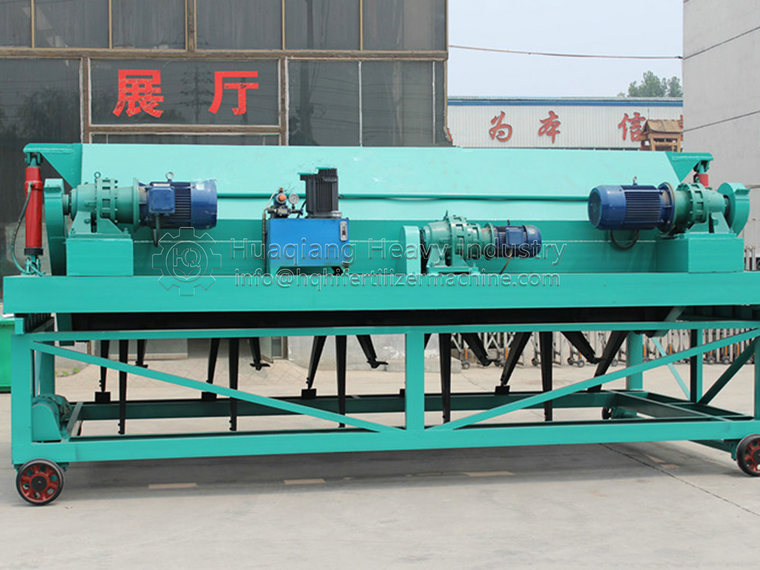The process of fermenting organic fertilizer using a small-scale organic fertilizer composting machine
Garbage is a very common thing in people’s lives, such as leftovers from farmers’ markets, dead branches and leaves in urban parks, various animal excrement, various straws, etc. These things are low in price and have even brought many negative effects on our living environment. But you know what? Garbage can also be made into organic fertilizer. We can make full use of these “garbage” and ferment them into organic fertilizer with fertilizer fermenter.The small windrow turning machine is the main machine in the bio organic fertilizer manufacturing line. It is designed to walk four wheels, which is operated by one person and can move forward, backward and turn.
During the driving, the whole vehicle is piled on the long strip fertilizer machine before riding. The rotary knife is hung under the machine to mix, fluffy and pile the raw materials of the fertilizer machine. After passing the vehicle, a new strip stacking will be formed, which can be carried out in the open space or in the workshop shed.
A major technological breakthrough of the compost windrow turning machine lies in the integration of the crushing function of the material in the later stage of fermentation. With the gradual dehydration of the material, a knife with a crushing device can be installed to effectively crush the plates formed during the fermentation process of the fertilizer.
The small windrow turning machine not only saves the crushing work before the fermentation material treatment, but also greatly improves the efficiency of grinding, reduces the production cost of organic fertilizer, and fundamentally solves the problem of the restriction of the pulverizer.
.jpg)
.jpg)
.jpg)
.jpg)



